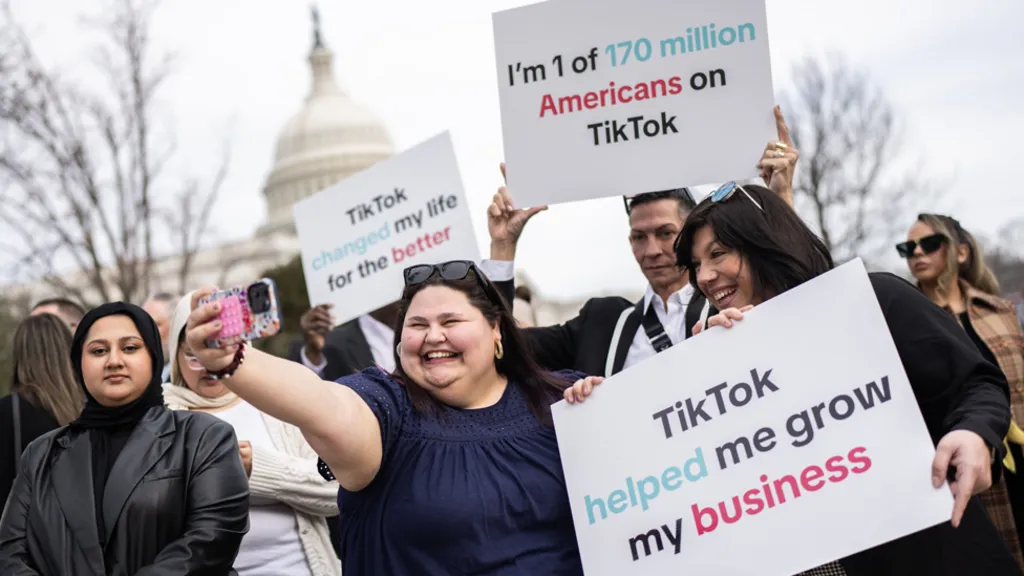
US TikTok ban: When and why could the app be outlawed?
TikTok could be banned in the US unless it is sold by its Chinese parent company ByteDance. The video sharing app has millions of users worldwide, but has faced questions over the security of users' data and its links to the government in Beijing. Who wants to ban TikTok in the US and why? Lawmakers from both major US political parties have called for a law that bans TikTok unless ByteDance agrees to sell the app to a non-Chinese company. They fear the Chinese government could force ByteDance to hand over data about TikTok's 170 million US users. TikTok insists it would not provide foreign user data to the Chinese government. The House of Representatives and Senate have now both approved a $95bn (£76bn) foreign aid package with funds for Ukraine, Israel and Taiwan which also contained a bill paving the way for the forced sale of TikTok.The legislation has been signed into law by President Joe Biden. Previous attempts to block the app in the US on national security grounds have failed. Former US President Donald Trump tried to ban the app when he was in the White House in 2020. But Mr Trump - the Republican 2024 presidential candidate - has criticised the new legislation, arguing that limiting TikTok would unfairly benefit Facebook. Is TikTok really a danger to the West? Can TikTok's owner afford to lose its killer app?When could TikTok be banned? Although Mr Biden has signed the bill into law, it does not mean an immediate US ban for TikTok. The legislation gives ByteDance nine months to sell TikTok to a new buyer, with an additional three-month grace period, before any ban would take effect. That means that the sale deadline would most likely come some time in 2025, after the winner of the 2024 presidential election takes office. If Mr Trump wins, he may seek to block the ban from being implemented. TikTok has vowed to fight the forced sale in the courts, which could take years. What could a TikTok ban mean for creators? US TikTok ban would be 'devastating', UK firms warn

